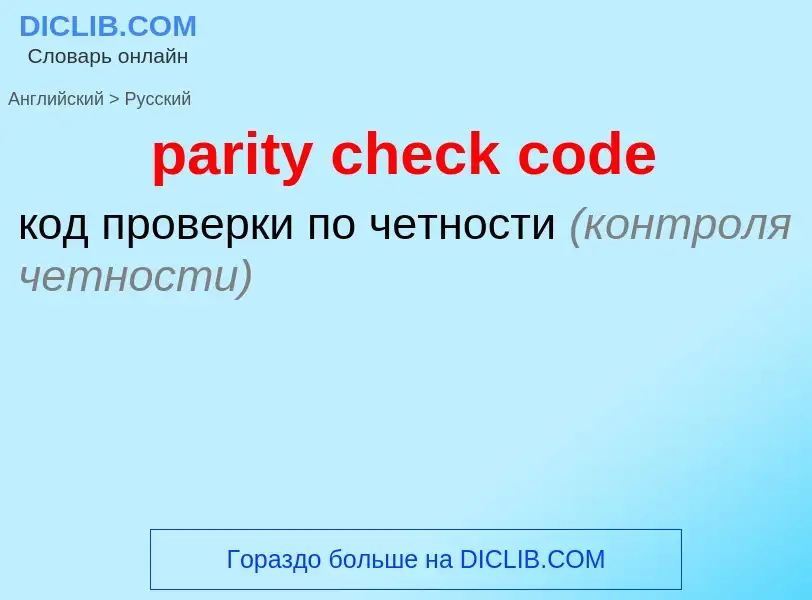Traduction et analyse de mots par intelligence artificielle ChatGPT
Sur cette page, vous pouvez obtenir une analyse détaillée d'un mot ou d'une phrase, réalisée à l'aide de la meilleure technologie d'intelligence artificielle à ce jour:
- comment le mot est utilisé
- fréquence d'utilisation
- il est utilisé plus souvent dans le discours oral ou écrit
- options de traduction de mots
- exemples d'utilisation (plusieurs phrases avec traduction)
- étymologie
parity check code - traduction vers russe
общая лексика
бит чётности, разряд чётности
дополнительный бит, добавляемый для контроля правильности пересылки к каждому байту (или слову) пересылаемых данных, чтобы в зависимости от протокола общее число единиц в байте было чётным или нечётным
разряд четности контрольный
разряд четности проверочный
Смотрите также
Définition
Wikipédia
In information theory, a low-density parity-check (LDPC) code is a linear error correcting code, a method of transmitting a message over a noisy transmission channel. An LDPC code is constructed using a sparse Tanner graph (subclass of the bipartite graph). LDPC codes are capacity-approaching codes, which means that practical constructions exist that allow the noise threshold to be set very close to the theoretical maximum (the Shannon limit) for a symmetric memoryless channel. The noise threshold defines an upper bound for the channel noise, up to which the probability of lost information can be made as small as desired. Using iterative belief propagation techniques, LDPC codes can be decoded in time linear to their block length.
LDPC codes are finding increasing use in applications requiring reliable and highly efficient information transfer over bandwidth-constrained or return-channel-constrained links in the presence of corrupting noise. Implementation of LDPC codes has lagged behind that of other codes, notably turbo codes. The fundamental patent for turbo codes expired on August 29, 2013.
LDPC codes are also known as Gallager codes, in honor of Robert G. Gallager, who developed the LDPC concept in his doctoral dissertation at the Massachusetts Institute of Technology in 1960. LDPC codes have also been shown to have ideal combinatorial properties. In his dissertation, Gallager showed that LDPC codes achieve the Gilbert–Varshamov bound for linear codes over binary fields with high probability. In 2020 it was shown that Gallager's LDPC codes achieve list decoding capacity and also achieve the Gilbert–Varshamov bound for linear codes over general fields.


